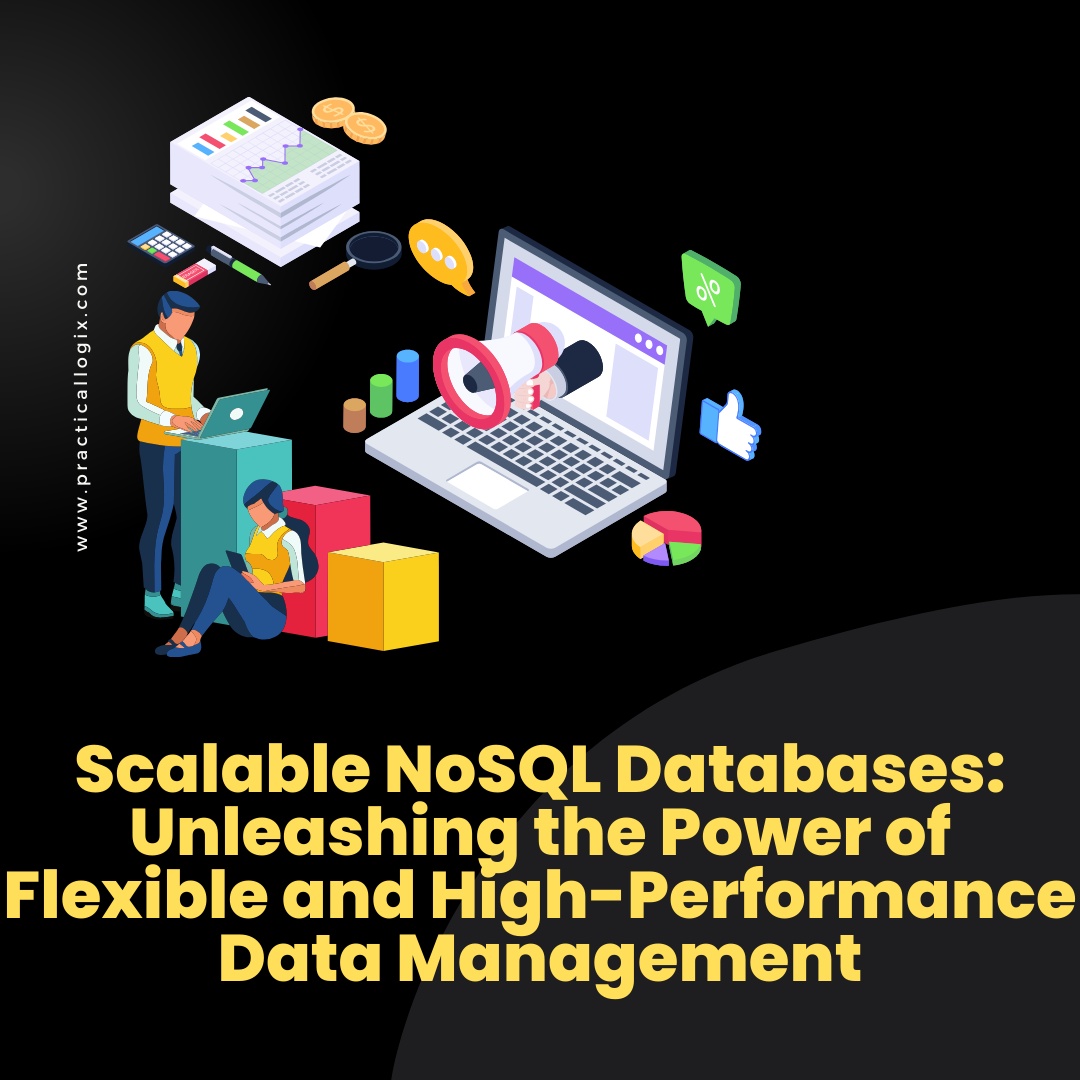In today's rapidly evolving digital landscape, there is an increasing demand for robust, adaptable, and scalable data management solutions. While traditional relational databases possess considerable power, they often encounter challenges in keeping pace with the ever-expanding volume and diversity of data generated by modern applications and services. It is in this context that Scalable NoSQL Database emerge as a viable solution. In this blog post, we will delve into the concept of Scalable NoSQL databases and their ability to unlock the potential for flexible, high-performance data management.
Understanding NoSQL Databases:
NoSQL databases, often referred to as "Not Only SQL," comprise a diverse range of database management systems that offer an alternative to traditional relational databases. While relational databases excel at structured data storage and complex queries, they face limitations when dealing with unstructured or semi-structured data and managing a large number of concurrent users. NoSQL databases, on the other hand, are purpose-built to handle vast volumes of data and provide flexibility in data modeling.
Scalability in NoSQL Databases:
Scalability is a critical aspect of modern data management. Whether you are operating a modest blog or a large-scale e-commerce platform, your data must be able to scale in order to meet the demands of your application. Scalable NoSQL databases are designed to offer horizontal scalability, allowing you to expand your database's capacity by adding more servers or nodes to your cluster. This elastic scalability ensures that your database can grow seamlessly alongside your application, without compromising on performance.
Types of Scalable NoSQL Databases:
There are various types of NoSQL databases, each with its own distinct strengths and use cases. Here are some of the most prevalent types:
- Document Databases: Document databases store data in semi-structured documents, typically in JSON or XML format. They offer high flexibility and are suitable for a wide range of applications, from content management systems to real-time analytics.
- Key-Value Stores: Key-Value stores are the simplest form of NoSQL databases, where data is stored as a collection of key-value pairs. They excel in high-speed data retrieval and caching.
- Column-Family Stores: Column-family stores, such as Apache Cassandra, are designed for massive scalability and can handle vast amounts of data across distributed clusters. They are well-suited for time-series data and large-scale applications.
- Graph Databases: Graph databases are optimized for managing relationships between data points. They are invaluable in applications that require complex data querying, such as social networks and recommendation engines.
Benefits of Scalable NoSQL Databases:
- High Performance: Scalable NoSQL databases are engineered for optimal performance. They are optimized for read and write operations, making them ideal for applications that require low latency and real-time data processing.
- Flexibility: NoSQL databases allow for flexible data modeling. You can adapt your data schema on the fly, making it easier to accommodate changing business requirements and data structures.
- Horizontal Scalability: As mentioned earlier, the ability to scale horizontally by adding more nodes to the cluster is a game-changer. It ensures your database can grow with your application's popularity without downtime or performance degradation.
- High Availability: Many NoSQL databases come with built-in mechanisms for high availability and fault tolerance. This means your application can continue running even if a server or node fails.
- Cost-Efficiency: Scalable NoSQL databases often run on commodity hardware, which can significantly reduce infrastructure costs compared to traditional relational databases.
Challenges of Scalable NoSQL Databases:
While Scalable NoSQL databases offer numerous advantages, they also come with challenges. Data consistency, complex queries, and the learning curve of adopting a new data model can pose difficulties for certain applications. Developers must carefully assess their project requirements to determine if a NoSQL solution is the appropriate choice.
In conclusion, Scalable NoSQL databases are a vital tool in the modern data management toolkit. They provide high-performance, flexibility, and scalability to meet the demands of today's data-intensive applications. However, it is crucial to select the appropriate type of NoSQL database based on specific project needs and comprehend the trade-offs involved. By doing so, organizations can harness the potential of Scalable NoSQL databases and elevate their data management capabilities.


No comments yet